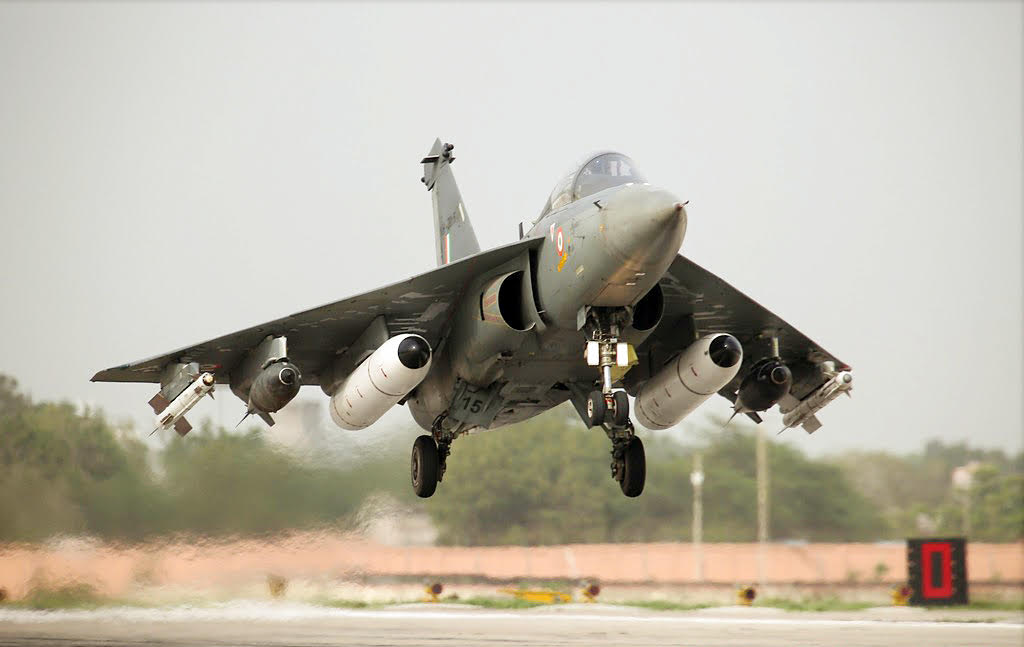Though a little late, India has embarked on the path of indigenization.
NEW DELHI: The production of defence equipment with modern technological trends has always been a challenge for most countries worldwide. This has resulted in most nations importing defence equipment to meet their domestic defence needs. The defence industry has become so lucrative in export-oriented countries that they hold a lot of say in the foreign policy of the concerned country. There have been instances where export-oriented countries related to defence equipment have been instrumental in initiating/prolonging a conflict so that their market of defence exports remains vibrant. The Russia-Ukraine war could also be such a case, as reported by some media platforms.
Be that as it may, it is essential for any country to be largely self-reliant in the defence domain. It is, therefore, essential that defence manufacturing be patronised if a country wants to become self-reliant. This is especially crucial for a country like India, which has two nuclear-armed adversaries like China and Pakistan sharing its land borders, with active disputes on the border. Both these adversaries have Indian land in their possession—with Pakistan in the form of Pakistan occupied Kashmir while Aksai Chin is with China, besides some other areas in other locations.
Though a little late, India has embarked on the path of indigenization. It is therefore important that defence manufacturing by domestic industries be patronised by the Government of the day to meet its own defence needs as well as exporting these products to friendly foreign countries worldwide.
While the Government is largely moving in the said direction, there are numerous areas where it requires more hand-holding, undertaking process simplification and setting targets that could be achievable despite being ambitious. There is a serious need to understand and appreciate the enhanced role of defence manufacturers in India to make the country self-reliant in this field. Some steps needed are as follows:
PARAMETERS OF ACCEPTANCE: There may be cases wherein the domestic defence manufacturers may not be able to produce the best defence equipment available in the world market at this stage. It is, therefore, required to be upfront stated that the defence forces of the country will accept all the equipment of domestic manufacturers, even if they are graded 7 or more on a scale where the best in the market is graded 10 on this scale. The need for a formal agency to adjudicate and upfront commitment by all the stakeholders for this is essential for all the equipment which is “in service” but is of import “origin”. This will help build confidence among domestic defence manufacturers.
PURCHASE FROM DOMESTIC DEFENCE MANUFACTURERS: Unlike the market of FMCG products, defence manufacturers can sell their products only to the Government organs. It is, therefore, important that the Government patronises the domestic manufacturers. It was a welcome announcement in the budget presented on Feb 22 to make purchases from domestic manufacturers a minimum of 68 percent, which was earlier 58%. When the budget was announced on 01 Feb 23 in the recent past, it was expected to be raised beyond 68 percent. However, it did not happen. The Government has now taken it to 75 percent post-budget, which is a very welcome move. It is, however, more important to objectively assess as to what has been the quantum of the real purchase from the domestic defence manufacturers. It is also important that for this percentage to be meaningful, it must be related to indigenous products. If the interpretation is related to Indian defence manufactures, including imported equipment/assemblies/components by them, the basic purpose will be defeated. While speaking in GIS23 in Lucknow, Hon’ble RM announced that the Government is considering enhancing the percentage of procurement from 68 percent (which has now been done), but he also cautioned that the practice of importing and then branding this product under this category must stop. It is, therefore, essential for the government to factually state as to what percentage of defence purchase in capital procurement
TRANSFER OF TECHNOLOGY (TOT): During GIS 23 in Lucknow, the Defence Minister emphasised that there is no advantage to grinding already grinded wheat, and therefore, TOT will be transferred to domestic manufacturers for free, whether with the government, DRDOs, or PSUs. While the announcement is a welcome sign, it will be worthwhile to see if the same is available to private manufacturers for free in a simple and transparent manner. It will be a very positive
INDIGENIZATION LISTS: The government has come out with four indigenization lists, where the first two lists cover the duration of four years, the third covers the duration of five years, and the fourth one covers the duration of ten years. The duration is supposedly based on the type of equipment being banned for imports, and each item has its timeline for banning imports. It is obvious that due diligence would have been done while including the items in these lists, including the timeline for banning the imports. However, more diligence is needed on these lists as well as those that may come up later, as the timelines have already started slipping. In addition to the inputs from the service HQs, DRDO, and PSUs, the MOD should co-opt inputs from domestic defence manufacturers. Only then will the timelines set forth be possible to achieve. A fresh reappraisal should be undertaken without any further delay.
Other major concerns need to be addressed to realise the enhanced potential of domestic defence manufacturers in India to translate the thought of indigenization into reality. Third-party quality audit certification and allocation of testing facilities, as well as ranges with defence forces, must be looked into. The provision must not only be made but also simple, transparent, and low cost/no cost, as the case may be. India has the potential to extend its shoulder not only to meet its defence needs but also those of friendly countries.
Major Gen Ashok Kumar is a retired Army officer.

